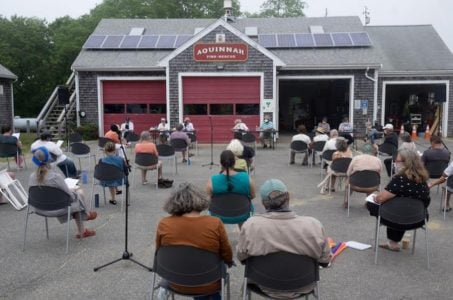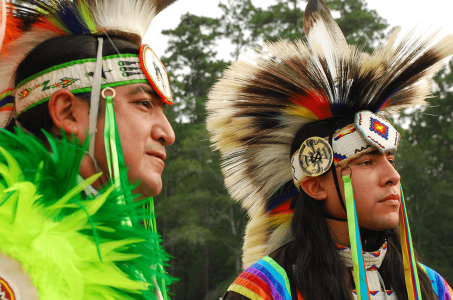Seneca Nation Requests Federal Review of New York Gaming Compact Amendment
Posted on: April 18, 2019, 08:11h.
Last updated on: April 18, 2019, 08:11h.
The Seneca Nation in upstate New York is requesting a federal review by the US Department of the Interior’s (DOI) Bureau of Indian Affairs regarding an amendment to its gaming compact with the state.

Earlier this month, a legally binding arbitration panel ruled that the Native American tribe must pay the State of New York more than $255 million in back revenue-sharing payments generated by its casinos. The Senecas stopped sharing 25 percent of slot revenues in 2016 after their 14-year gaming compact expired.
The original compact stated that following the 2016 expiration, the casino agreement would automatically roll over for another 14 years. But tribal officials contend that nothing was specifically stated in the language mandating that gaming revenue sharing would continue.
A legal battle ensued, which resulted in a three-member arbitration ruling 2-1 in the state’s favor. The tribe isn’t ready to hand over the money.
The arbitration panel’s members, instead of interpreting the clear language of the Nation-State Compact, took it upon themselves to effectively and materially amend the agreed upon terms of the Compact, and they did so without regard for federal law and required procedures that govern both the Compact and the amendment process,” Seneca Nation President Rickey Armstrong Sr. declared.
“Their ruling creates an obligation on behalf of the Seneca Nation that does not exist in the Compact as it is written, or as was reviewed and deemed approved by the Secretary of Interior in 2002,” Armstrong said in his request for a federal review.
Seneca Appeal
The Seneca Nation owns and operates three casinos: Seneca Buffalo Creek, Seneca Allegany, and Seneca Niagara. Instead of sending revenue-sharing payments to the Albany capital, the tribe has been dispersing the funds to its three resorts.
As a result, the four upstate New York commercial casinos say they’re struggling to compete with the tribe’s increased promotions being afforded to gamblers.
Resorts World Catskills, Tioga Downs, Rivers, and Del Lago are all underperforming in terms of gross gaming revenue (GGR) compared to premarket forecasts. The venues are required to share 37-45 percent of their slot win with the state, much higher than the Senecas.
The $1 billion Resorts World Catskills – the most expensive of the four commercial casinos – reported a nearly $140 million operating loss in 2018.
Del Lago fell short $100 million in GGR in its first year. Property spokesman Steven Greenberg said the casino resort faces a “blatantly unfair competitive disadvantage” due to the Seneca’s guest promotions and incentives.
DOI Intervention
Armstrong argues that the arbitration’s determination effectively amended the Seneca Nation’s gaming compact, and under the federal Indian Gaming Regulatory Act (IGRA), any such change must be reviewed by the DOI.
The Interior Department has made plenty of negative headlines in recent years, especially in the gaming industry.
Former Interior Secretary Ryan Zinke refused to comment on Connecticut’s amended compacts with its two Native American tribes that sought to allow them to jointly build a satellite casino on non-sovereign land. The Mashantucket Pequot and Mohegan Indians finally received approval from the federal agency last month, but the long delay allowed MGM Springfield just across the Connecticut-Massachusetts border to open last August with a much larger regional monopoly on casino gaming.
The tribes are building their mini-casino in East Windsor, CT, in an effort to slow gaming dollars from flowing out of the state.
Related News Articles
Most Popular
Mirage Las Vegas Demolition to Start Next Week, Atrium a Goner
Where All the Mirage Relics Will Go
Most Commented
-
Bally’s Facing Five Months of Daily Demolition for Chicago Casino
— June 18, 2024 — 12 Comments -
Chicago Pension Mess Highlights Need for Bally’s Casino
— July 2, 2024 — 5 Comments
















Last Comment ( 1 )
The author of this propaganda piece is obviously either a tool for Steven Greenberg or just too lazy to collect accurate information. Even a cursory check would prove that the Seneca Gaming Corp has been setting the slot funds aside in an escrow account. Dipstick.